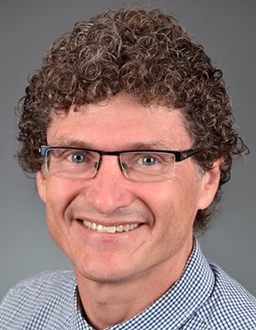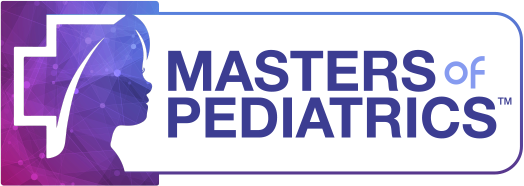
Clinical Spotlight: Pediatric Diagnosis & Treatment for Rett Syndrome
Rett Syndrome is one of the most frequent causes of mental disability in females, with an estimated prevalence of 1 in 10,000 under the age of 12. It is characterized by normal early growth and development followed by a slowing of development, loss of purposeful use of the hands, distinctive hand movements, slowed brain and head growth, problems with walking, seizures, and intellectual disability.
Significant challenges remain in the screening, diagnosis, and treatment of this condition, stemming from overall limited awareness as well as limited treatment options. Several emerging therapeutics are in clinical development that could potentially lessen the impacts of this condition in the near future, and during this activity, experts will overview these advances, as well as share important clinical pearls on the burden, screening, and diagnosis of Rett Syndrome.
Target Audience
This activity is intended for physicians, physician assistant/associate, nurse practitioners, registered nurses and other healthcare providers who care for patients with Rett Syndrome.
Learning Objectives
After completing this activity, the participant should be better able to:
- Summarize the background of Rett Syndrome
- Discuss the quality-of-life of pediatric patients who have Rett Syndrome
- Recognize important considerations when providing a differential diagnosis in patients with Rett Syndrome
- Describe the emerging treatment options for Rett Syndrome
Additional Information
| Attachment | Size |
|---|---|
| 2.98 MB | |
| 1.61 MB |

Richard Haas, MD
- Director of the Neurometabolic Clinic at Rady Children's Hospital ‐ San Diego
- Director of the Mitochondrial Disease Laboratory
- Professor at UC San Diego School of Medicine
Dr. Haas discloses the following:
- Clinical Trial Support: Acadia Pharmaceuticals, PTC Therapeutics, Reneo Pharmaceuticals, Astellas Pharmaceuticals, Zoogenix Inc., and SPARC Pharma

David Lieberman, MD
- Assistant, Neurobiology Departmant at Boston Children’s
- Instructor, Neurology at Harvard Medical School
Dr. Lieberman discloses the following:
- Consultant Fees: Acadia Pharmaceuticals, Taysha Gene Therapy, and Neurogene
Estimated time to complete the activity: 1.25 Hours


Jointly provided by Partners for Advancing Clinical Education (PACE) and Masters of Pediatrics.
This activity is supported by an independent educational grant from Acadia Pharmaceuticals.
For additional information about the accreditation of this activity, please visit https://partnersed.com.
Faculty and Disclosure of Conflicts of Interest
PACE requires instructors, planners, managers, and other individuals who are in a position to control the content of this activity to disclose all financial relationships they may have with ineligible companies. All relevant financial relationships are thoroughly vetted and mitigated according to PACE policy. PACE is committed to providing learners with high-quality accredited CE activities and related materials that promote improvements or quality in healthcare and not a specific proprietary business interest of an ineligible company.
The faculty reported the following financial relationships or relationships to products or devices they have with ineligible companies:
Faculty | Conflicts of Interest |
Richard Haas, MD Director of the Neurometabolic Clinic at Rady Children's Hospital‐San Diego Director of the Mitochondrial Disease Laboratory Professor at UC San Diego School of Medicine | Clinical Trial Support: Acadia Pharmaceuticals, PTC Therapeutics, Reneo Pharmaceuticals, Astellas Pharmaceuticals, Zoogenix Inc., and SPARC Pharma |
David Lieberman, MD Assistant, Neurobiology Departmant at Boston Children’s Instructor, Neurology at Harvard Medical School | Consultant Fees: Acadia Pharmaceuticals, Taysha Gene Therapy, and Neurogene |
The PACE planners and others have no relevant financial relationship(s) to disclose with ineligible companies. The Masters in Pediatrics planners and others have no relevant financial relationship(s) to disclose with ineligible companies.
Joint Accreditation Statement
| In support of improving patient care, this activity has been planned and implemented by Partners for Advancing Clinical Education (PACE) and Masters of Pediatrics. PACE is jointly accredited by the Accreditation Council for Continuing Medical Education (ACCME), the Accreditation Council for Pharmacy Education (ACPE), and the American Nurses Credentialing Center (ANCC), to provide continuing education for the healthcare team. |
Physician Continuing Education
PACE designates this enduring material for a maximum of 1.25 AMA PRA Category 1 Credits™. Physicians should claim only the credit commensurate with the extent of their participation in the activity.
Nursing Continuing Education
The maximum number of hours awarded for this Continuing Nursing Education activity is 1.25 contact hours.
If applicable, pharmacotherapy contact hours for Advanced Practice Registered Nurses will be designated on your certificate.
Disclosure of Unlabeled Use
This educational activity may contain discussion of published and/or investigational uses of agents that are not indicated by the FDA. The planners of this activity do not recommend the use of any agent outside of the labeled indications.
The opinions expressed in the educational activity are those of the faculty and do not necessarily represent the views of the planners. Please refer to the official prescribing information for each product for discussion of approved indications, contraindications, and warnings.
Disclaimer
Participants have an implied responsibility to use the newly acquired information to enhance patient outcomes and their own professional development. The information presented in this activity is not meant to serve as a guideline for patient management. Any procedures, medications, or other courses of diagnosis or treatment discussed or suggested in this activity should not be used by clinicians without evaluation of their patient’s conditions and possible contraindications and/or dangers in use, review of any applicable manufacturer’s product information, and comparison with recommendations of other authorities.
Instructions for Credit
In order to obtain your CE credit, please follow the steps below at the conclusion of the activity:
This activity is complimentary and available during the period of December 14, 2022 through December 14, 2023. Participants must read the learning objectives and faculty disclosures, study the educational activity, obtain a score of 70% or better on the post-test, and complete the evaluation. Upon completing, your certificate will be be available for print. For questions about receiving certificates, please contact us at [email protected].
Available Credit
- 1.25 AMA PRA Category 1 Credit™
- 1.25 ANCC
- 1.25 Participation
Required Hardware/software
A computer with an internet connection
Internet Browser: Internet Explorer 7.x or higher, Firefox 4.x or higher, Safari 2.x or higher, or any other W3C standards compliant browser
Other additional software may be required such as PowerPoint or Adobe Acrobat Reader.

 Facebook
Facebook X
X LinkedIn
LinkedIn Forward
Forward